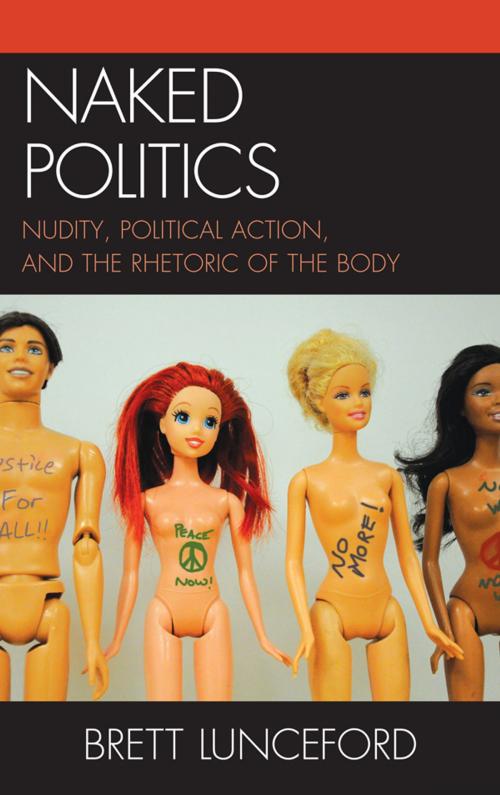Naked Politics
Nudity, Political Action, and the Rhetoric of the Body
Nonfiction, Social & Cultural Studies, Political Science, Government, Civics, Social Science| Author: | Brett Lunceford | ISBN: | 9780739177020 |
| Publisher: | Lexington Books | Publication: | June 14, 2012 |
| Imprint: | Lexington Books | Language: | English |
| Author: | Brett Lunceford |
| ISBN: | 9780739177020 |
| Publisher: | Lexington Books |
| Publication: | June 14, 2012 |
| Imprint: | Lexington Books |
| Language: | English |
Naked Politics: Nudity, Political Action, and the Rhetoric of the Body by Brett Lunceford, examines the rhetorical power of the unclothed body as it relates to protest and political action. This study explores what the disrobed body communicates, and how others are invited to make sense of this display. The actions examined range from grassroots protests to those of professionalized social movement organizations. Specifically, Lunceford examines PETA and the use of chained women and the Running of the Nudes; lactivists, or women engaging in public breastfeeding as protest action in both online and physical space; the World Naked Bike Ride’s worldwide protest against oil dependency and attempt to raise awareness of the vulnerability of cyclists; and a contest held on College Humor that invited women to write their preferred presidential candidate on their exposed breasts and send the picture to them to post on the site. Although these actions may seem to have little in common beyond their use of body exposure, they all share the notions that something can happen when you take your clothes off and that the act of disrobing can have social and political consequences. Moreover, these groups illustrate the often paradoxical views of the exposed body—by both the participants and the observers—and how such bodies operate in the public sphere. Even when the voice is silent, the body still speaks; Naked Politics considers what is being said.
Naked Politics: Nudity, Political Action, and the Rhetoric of the Body by Brett Lunceford, examines the rhetorical power of the unclothed body as it relates to protest and political action. This study explores what the disrobed body communicates, and how others are invited to make sense of this display. The actions examined range from grassroots protests to those of professionalized social movement organizations. Specifically, Lunceford examines PETA and the use of chained women and the Running of the Nudes; lactivists, or women engaging in public breastfeeding as protest action in both online and physical space; the World Naked Bike Ride’s worldwide protest against oil dependency and attempt to raise awareness of the vulnerability of cyclists; and a contest held on College Humor that invited women to write their preferred presidential candidate on their exposed breasts and send the picture to them to post on the site. Although these actions may seem to have little in common beyond their use of body exposure, they all share the notions that something can happen when you take your clothes off and that the act of disrobing can have social and political consequences. Moreover, these groups illustrate the often paradoxical views of the exposed body—by both the participants and the observers—and how such bodies operate in the public sphere. Even when the voice is silent, the body still speaks; Naked Politics considers what is being said.















